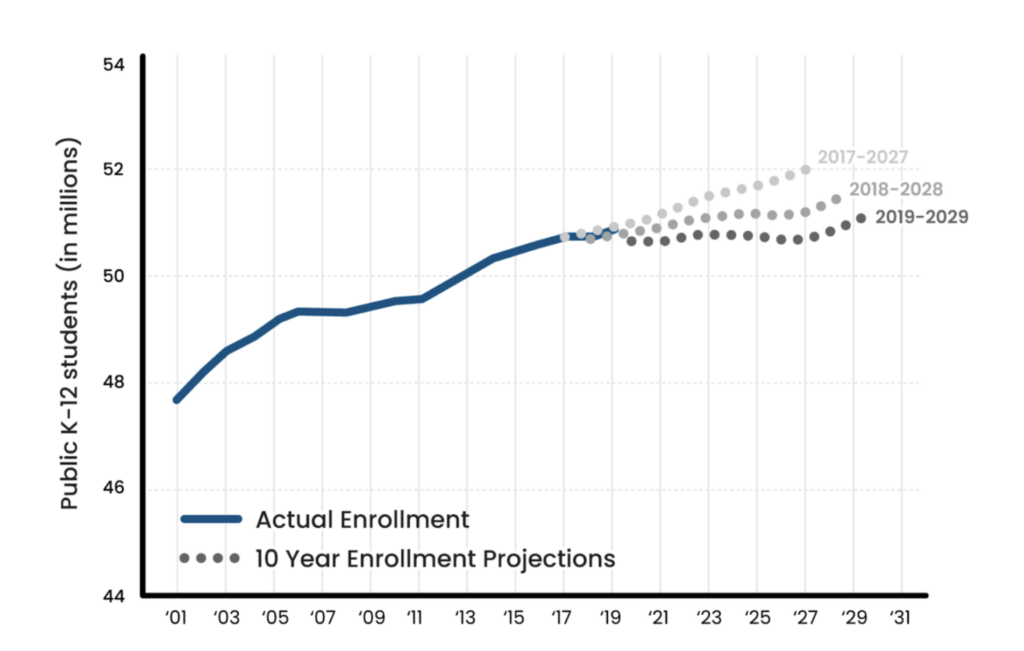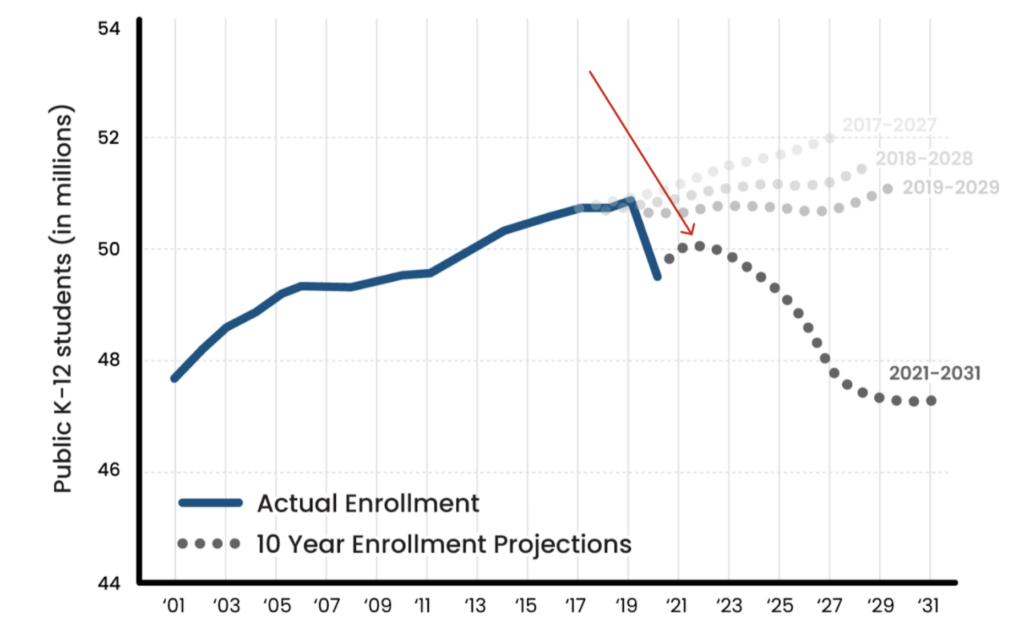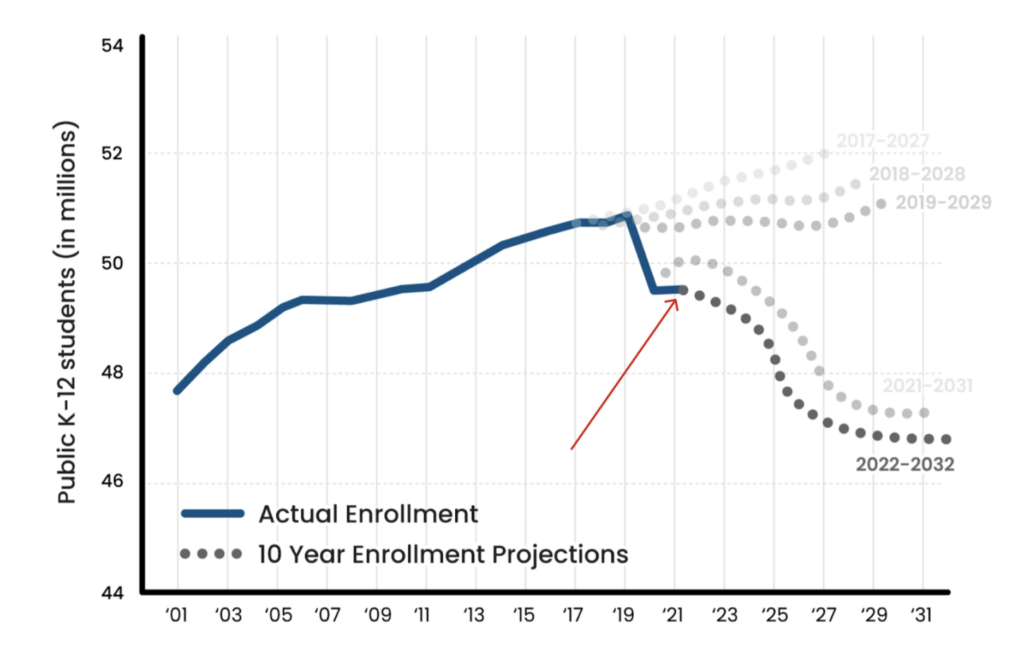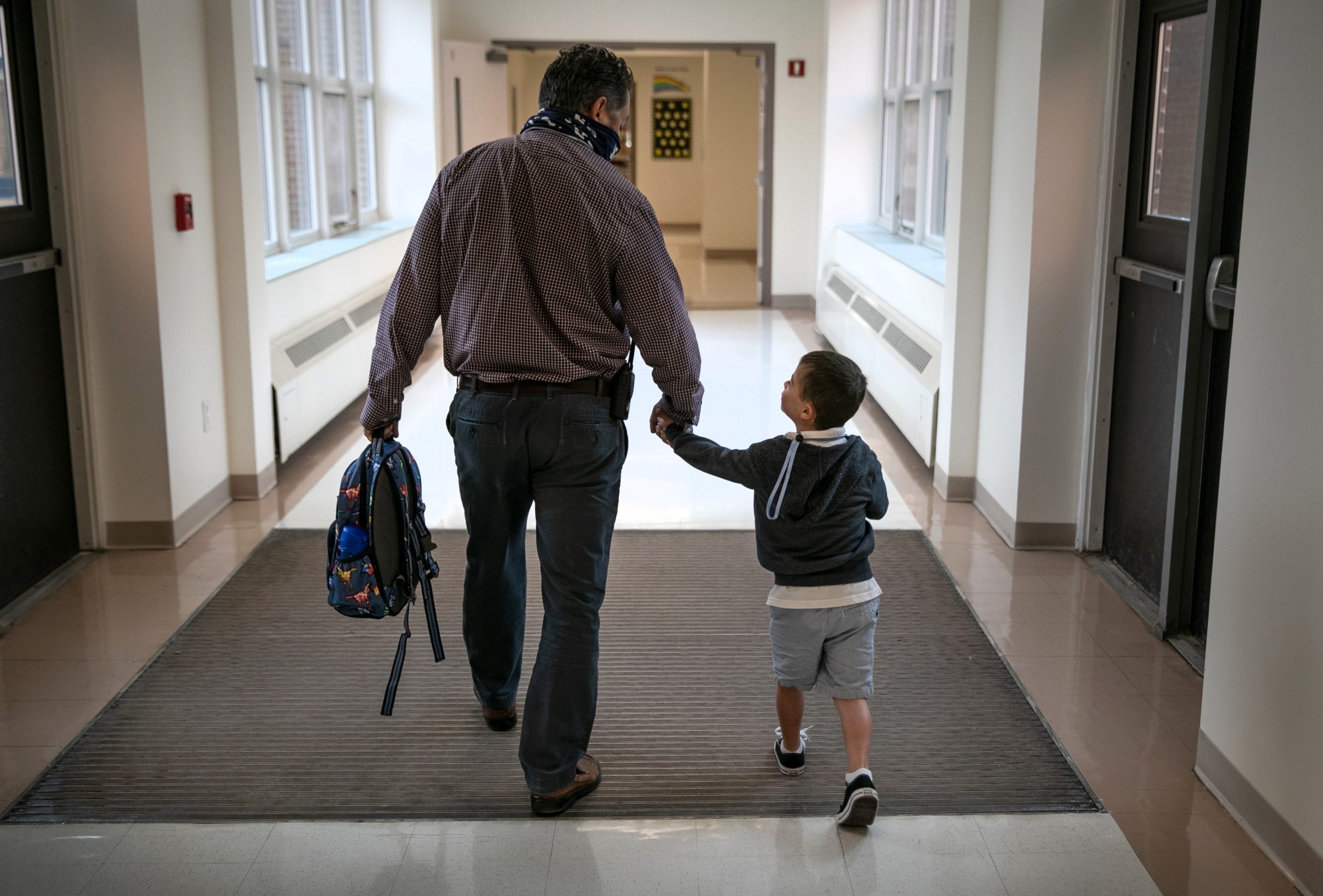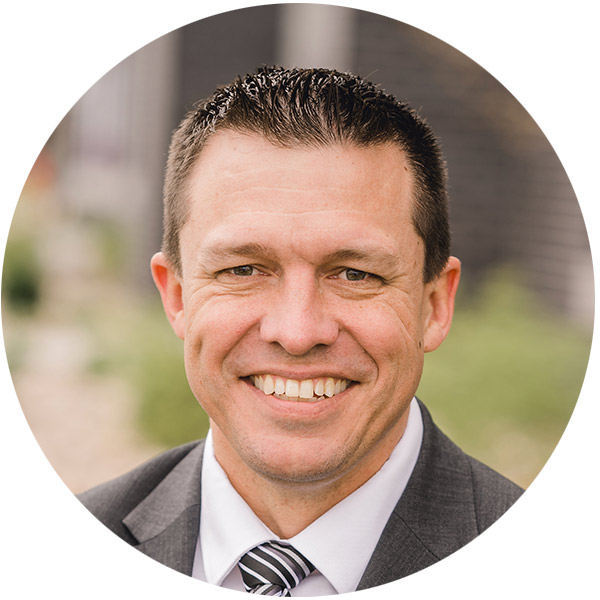The education market is in a state of disruption. What does this mean?
A market disruption is any significant change to an industry that alters the current business model. It creates changes that are impossible or difficult to undo. They require businesses to adapt, innovate, and find new ways to satisfy customers.
The education market has many of the indicators that a disruption is taking place. Public school enrollment is declining faster than lowered birth rates can account for. New education models, like microschools, are gaining popularity. School choice policies, like education savings accounts, provide parents with more flexibility. These all point to a disruption reshaping the future of education.
Uber and Amazon disrupted their industries, leaving their customers with better services. Similarly, new education models, and supportive school choice policies are improving education options for parents and students, improving the entire industry.
The Education Disruption in Three Graphs
These graphs from The 74 tell the story of the rapid disruption public schools have experienced since 2020.
Before Covid, public schools were projecting continued student growth.
But once Covid interrupted schools, researchers knew that many parents would not come back. Still, they anticipated an enrollment bump as students returned to public school.
It didn’t happen.
The parents of 1.3 million students walked away from public schools during the pandemic and never returned.
Even Utah, a state predicted to gain enrollment, lost students this year.
Where are the Students Going?
Public school competitors are growing while public school enrollment is in decline. Charter school and private school enrollment is up across the country, microschools continue to gain popularity and homeschooling has become the fastest growing form of education in the past few years.
Changing Parent Perspectives
Parents are no longer driven to send their children to public school “just because.” They are questioning the one-size-fits-all approach. They and their children have diverse needs.
Many parents felt ignored during the pandemic. They watched the needs of children being overlooked. Those same needs continued to be neglected as their children returned to school.
But other options provided parents with choices. Many charter and private schools provide smaller class sizes. During Covid, parents discovered homeschooling was enjoyable and easier than they thought. Microschools have developed to meet the needs of specific types of students.
Changing State Policies
School choice programs have spread across the country since 2020. In 2023 alone, 40 states considered some form of school choice policy, while 20 states passed legislation adopting a new program or expanding existing ones.
Over 30% of children have access to some form of school choice program in their state. And for the first time, over one million students participated. That may not seem like a lot, but 1.4 million people bought the first iPhone in 2007, which kicked off the smartphone revolution.
New Education Models
While many parents choose private or charter schools, many are finding that microschools fit their child best.
Microschools have become a catch-all phase used to describe a wide range of education options. Most microschools are more affordable than traditional private schools. Some act as supplements to homeschooling parents meeting a few times a week. Others are five days per week, but each student is able to go at their own pace. Most are small with only 10-15 students, while others are larger with over 100.
They are forming to meet the needs of specific types of students.
Tanya Shekley created Up Academy to meet the needs of her daughter with cerebral palsy. Her San Francisco area school focuses on putting students in mixed age and ability groups, thus building empathy for students different from themselves.
Dr. Dal “Doc” Richardson is the founder of Breakout School. Inspired by his two children with ADD, Doc created a school that spends 80% to 90% of their time outdoors. Students in his school can go at their own pace. His middle grade school has seen students go from hating school to excelling in traditional high schools when they return.
Adapt of Fade Away
The disruption in education isn’t a fleeting trend – it’s a shift in what families expect and seek. And similar to how Blockbuster died after failing to evolve, public schools now face a pivotal choice: adapt or become irrelevant. Parents want options that meet their child’s needs, and if traditional schools don’t deliver, families will continue to find alternatives.
The future of education is student-centered, diverse, and customizable. Schools that embrace this change will thrive.
The education industry is disrupted and our kids’ education will be better for it.

